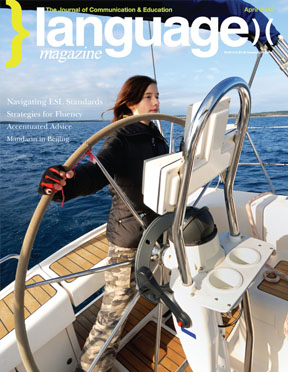Entrepreneurial Educators
As the specter of recession looms large in government accounting offices nationwide, and lawmakers, confronted with the “unexpected” prospect of diminishing tax revenues, are slashing education budgets with abandon, the only real surprise should be that it took so long for the bubble to burst. For several years, economists have warned that growth levels were not sustainable as increases in spending were the result of increased borrowing against property rather than increased incomes. However, our political leaders failed to heed their advice and make provisions for the inevitable downturn and we are now confronted with a crisis situation where tens of thousands of teachers’ jobs are threatened and hundreds of schools face closure.
As usual, some states are better prepared than others, and the states that look set to suffer the most severe cutbacks are those with the highest percentages of minorities and the most English language learners – precisely the children who need the most resources. However, when we look more closely at schools within these states, we see that most schools in more affluent areas are better able to cope with funding cuts. Part of the reason is that such schools receive relatively more state funding, but another important factor is that they raise considerable funding within their communities. Of course, the richer the community, the easier it is to raise funds, but most Americans recognize that all schools need to be funded adequately, not just those which their own children attend.
If our elected representatives cannot be trusted with managing budgets and making provisions for hard times, we can only turn to other sources to make up the shortfall. Businesses, local and not so local, especially large employers in the neighborhood, may be prepared to contribute to the school fund. Insurance companies and banks are also often willing to contribute in return for some promotional exposure.
Of course, educators should be spending their time doing what they do best – teaching, but teachers are naturally good organizers and motivators – exactly what is needed for fundraising.
World language programs in high schools across the nation are also at risk because they are often not compulsory and not subject to standardized testing. But, here again, teachers can campaign for the support of businesses in recognizing the importance of languages, and use their endorsements as ammunition in the fight for program survival. Even if programs are cut, there may be the possibility of using software programs to help students continue with their language studies, or you may be able to set up a low-cost, email, pen pal program so that students can carry on learning through international peer-to-peer networking.
Of course, none of these measures will make up for the cuts in public funding, but our public education system is worth saving, so we must do all we can to help it survive.
IN THIS ISSUE:
Navigating English Learner Standards
John Carr explains how WestEd’s Map of Standards for English Learners not only clarifies California’s standards, but can be used to improve the instruction and assessment of English learners in any classroom setting
Upholding Standards
Dan Domenech argues that formative assessment enables teachers to teach to standards, not just ‘to the test’
Speaking Strategically
Mohammed Arroub demonstrates the benefits of using achievement strategies to increase oral fluency in a second language
Accenting the Positive
Lynda Katz Wilner and Marjorie Feinstein-Whitaker offer simple tips for accent reduction
Crazed on Phonics
Diego Uribe asks if teachers’ input is taken into account when policies on reading education are determined
Capitalizing on China
Christine Tsai scours the districts of China’s capital for Mandarin immersion programs to suit all tastes
The Contrasts of Chile
Christine Tsai marvels at the variety of destination
Last Writes
Richard Lederer on Language Inventors






